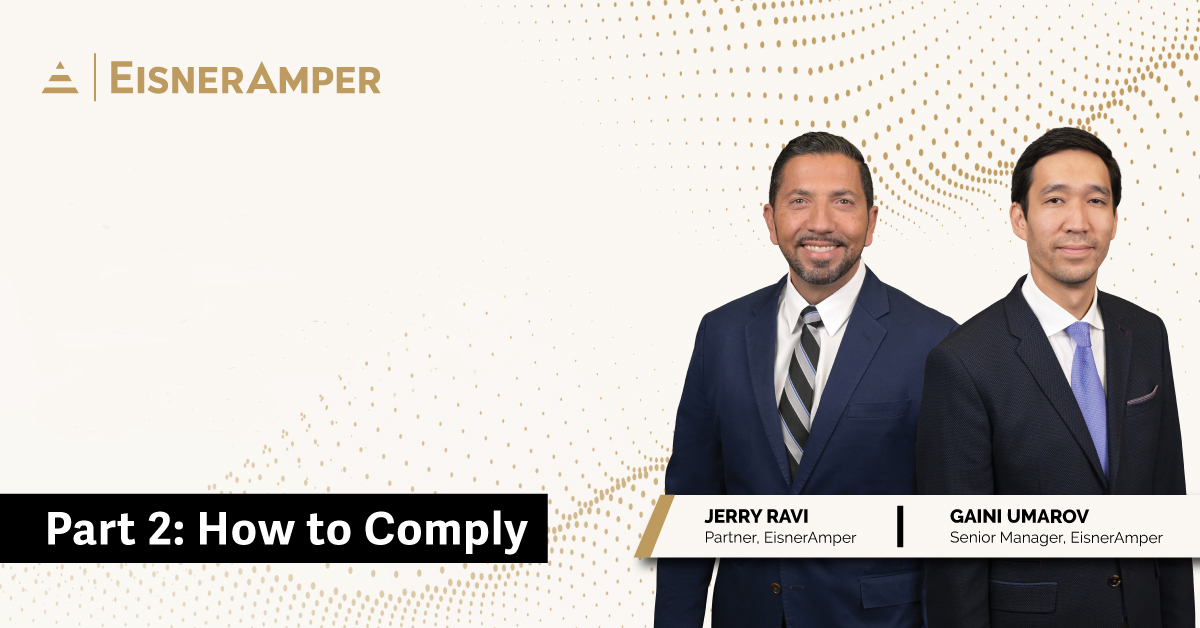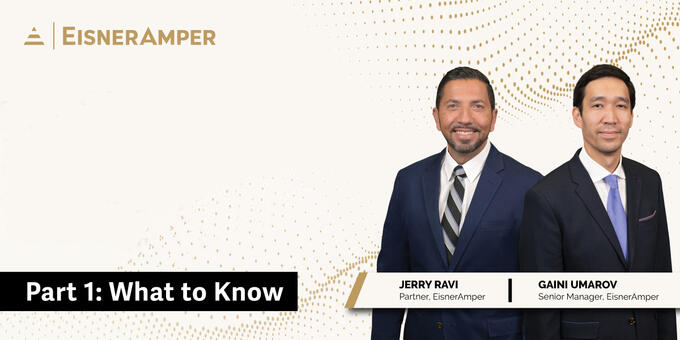
Compliance and Regulatory Services ("CARS") Hot Topics for February 2016
- Published
- Feb 5, 2016
- Share
For this month, we chose to highlight the Department of Labor’s (“DOL”) proposed fiduciary duty definition, recently submitted to the Office of Management and Budget (“OMB”) for approval. If adopted as proposed, it will have a far reaching impact on investment advisers’, broker-dealers’ and, potentially, plan administrators’ business practices related to ERISA plans, including 401(k) plans and IRAs.
The DOL’s fiduciary standard broadens the definition of a fiduciary. The DOL is casting a wider net to capture activities that have never before been considered investment advice, yet will now trigger the fiduciary status. Under the proposal, any person who renders “investment advice for a fee or other compensation, direct or indirect is an investment fiduciary, regardless of whether they have direct control over the plan’s assets and regardless of their status as an investment adviser and/or broker under the federal securities laws.”
Impact on Investment Advisers and Broker/Dealers
Many of the routine activities of an investment adviser, broker/dealer and (potentially) administrator who provide assistance to or solicit 401(k) plan account holders for the purpose of rolling over into an IRA or makes recommendations on the distribution of plan assets would be considered a fiduciary. This will materially affect the business activities of call centers of every investment adviser and/or broker-dealer who seeks to entice plan participants to roll over into an IRA and certain administrators who do more than just provide roll over forms upon plan participants' requests. However, to clarify this point, information that is provided to plan participants as to how they can roll over their interests in a plan does not fall within the scope of acting as a fiduciary.
In addition, other activities common to the asset management industry could be considered fiduciary investment advice, such as an appraisal, fairness opinion, or similar statement concerning the value of securities or other property, regardless whether it is verbal or written, if provided to an adviser of plan assets. Also, valuation reports or investment research customarily provided to investment advisers by either broker-dealers or independent research firms could be considered providing investment advice and fall under the DOL’s definition. Also, even if this information is only being passed on by the recipient to another organization that advises plan assets, the original provider and intermediary could be considered a fiduciary. The only exception under the DOL definition is if the valuation report is provided in connection with legally required reporting and disclosure obligations.
However, there are carve-out exceptions and a new type of class exemption called the best interest client (“BIC”) exemption. Many of the carve-out exceptions are very specific and difficult to implement, which makes them somewhat impractical. The BIC exemption would permit an entity deemed to be providing fiduciary investment advice to receive certain types of compensation only if the fiduciary enters into a BIC or agreement with the client where the fiduciary contractually agrees to be subject to the “best interest” standard under ERISA. This is the prudent standard of undivided loyalty where the fiduciary is contractually obligated to provide advice without regard to the financial or other interests of the fiduciary, financial institution or any affiliate, related entity or other party. Note that the compensation exemption does not cover fees customarily received by hedge funds or private capital funds, or compensation related to futures and options.
Our Take: The DOL’s proposal on its face appears to be unreasonable and will adversely impact many different firms’ ability to conduct business as usual and also raises the liability bar by providing plans and their participants with a private right of action against the entity deemed to be a fiduciary. It will also force the hand of the SEC to adopt a standard that is somewhat consistent or risk having different and multiple standards of fiduciary duty, depending on the regulator.
SEC News
Speeches
| Jan. 25, 2016 | Directors Forum 2016 Keynote Address | Andrew Ceresney, Director, Division of Enforcement |
| Jan. 21, 2016 | International Developments – Past, Present and Future | Keith F. Higgins, Director, Division of Corporation Finance |
FINRA News
| Jan 5, 2016 | FINRA's 2016 Focus: Supervision, Liquidity and Securities Firms' Culture |
(Complete Listing: http://www.finra.org/Industry/Regulation/Notices/2014/index.htm)
FINRA Rule Filings List:
(Complete Listing: http://www.finra.org/Industry/Regulation/RuleFilings/2014/index.htm)
Contact EisnerAmper
If you have any questions, we'd like to hear from you.
Receive the latest business insights, analysis, and perspectives from EisnerAmper professionals.











